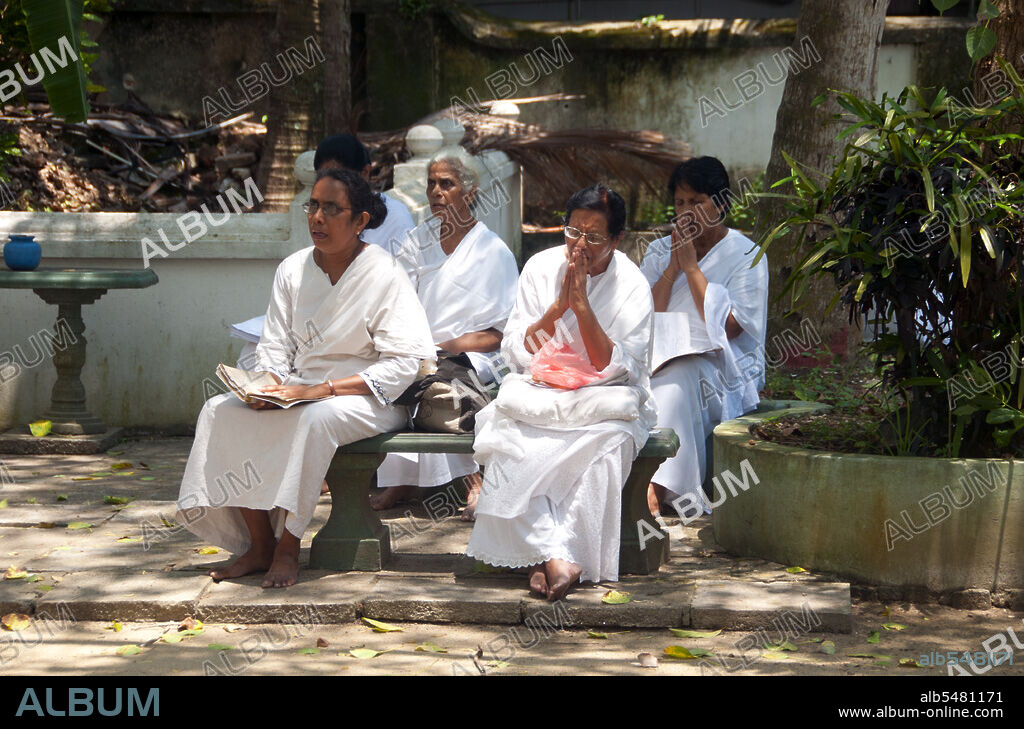alb5481171
Devotees at a Buddhist temple in Mount Lavinia, south of Colombo.

|
Add to another lightbox |
|
Add to another lightbox |



Title:
Devotees at a Buddhist temple in Mount Lavinia, south of Colombo.
Caption:
According to traditional Sri Lankan chronicles (such as the Dipavamsa), Buddhism was introduced into Sri Lanka in the 4th century BCE by Venerable Mahinda, the son of the Emperor Ashoka, during the reign of Sri Lanka's King Devanampiya Tissa. During this time, a sapling of the Bodhi Tree was brought to Sri Lanka and the first monasteries were established under the sponsorship of the Sri Lankan king. The Pali Canon, having previously been preserved as an oral tradition, was first committed to writing in Sri Lanka around 30 BCE. Sri Lanka has the longest continuous history of Buddhism of any Buddhist nation, with the Sangha having existed in a largely unbroken lineage since its introduction in the 4th century. During periods of decline, the Sri Lankan monastic lineage was revived through contact with Myanmar and Thailand. Periods of Mahayana influence, as well as official neglect under colonial rule, created great challenges for Theravada Buddhist institutions in Sri Lanka, but repeated revivals and resurgences - most recently in the 19th century CE - have kept the Theravada tradition alive for over 2,600 years.
Credit:
Album / Pictures From History/Universal Images Group
Releases:
Model: No - Property: No
Rights questions?
Rights questions?
Image size:
4904 x 3238 px | 45.4 MB
Print size:
41.5 x 27.4 cm | 16.3 x 10.8 in (300 dpi)
Keywords:
ADORATION (GENERAL) • ADORATION • ASIA • ASIAN • BUDDHISM • BUDDHISM, BHUTANESE • BUDDHIST • CEYLON • CEYLONESE • CULT • CULT, BUDDHIST • CULTURED • HISTORIA UNIVERSAL • HISTORICAL • HISTORY • MEDITATION • MOUNT LAVINIA • PRAISE • RELIGION • RITUAL • SRI LANKA • SRI LANKAN • TEMPERA • TEMPLE • TEMPLES • THERAVADA • WORSHIP • WORSHIPPERS
 Pinterest
Pinterest Twitter
Twitter Facebook
Facebook Copy link
Copy link Email
Email

